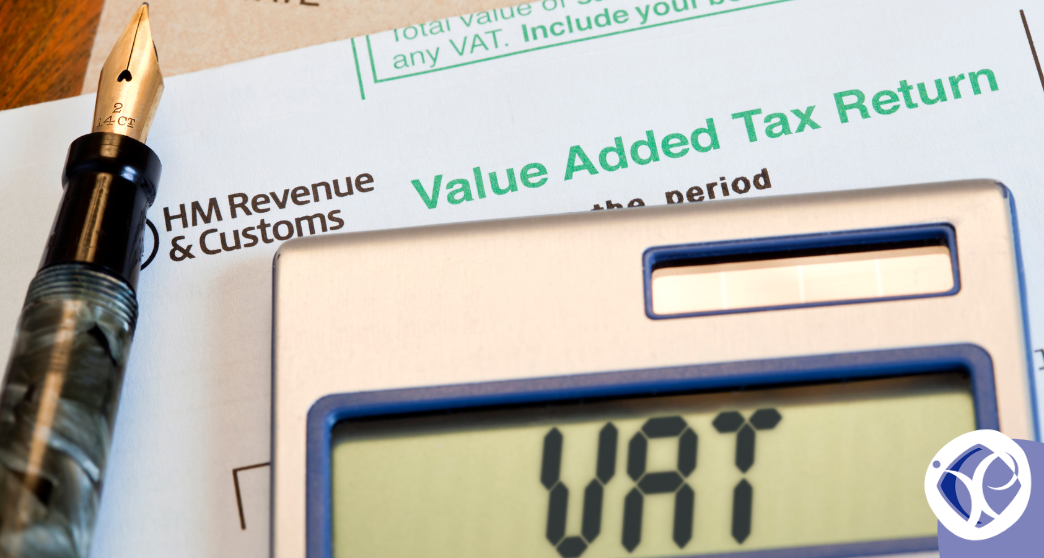With The VAT rate steadfast at 20%, individuals and businesses should seek strategies that soften its financial impact.
This necessity becomes more pronounced as we face an ever-evolving economic environment where effective financial planning is not just beneficial but essential.
We talk about our ten favourite VAT-saving strategies, offering invaluable insights for both personal and business financial optimisation.

(Read Time: Approx. 4 minutes)
Topics Discussed:
- An exploration of ten strategic approaches to reduce VAT liabilities, offering a blend of straightforward and advanced techniques.
- Practical insights into navigating VAT regulations through uncovering hidden expenses and maximising claims.
1. Uncover ‘Hidden’ Business Expenses
A significant number of VAT-registered businesses adeptly reclaim VAT on straightforward business expenses.
However, many overlook the potential to reclaim VAT on less obvious costs.
For instance, the business use of a home phone line or internet, where a proportionate claim can reflect their business utility.
Similarly, the business use of computers and printers often escapes attention.
Importantly, for expenses overlooked in previous VAT returns, amendments can reclaim rightfully owed funds, making a thorough review of past expenditures crucial.
2. Maximise VAT Claims on ‘Subsistence’
Subsistence, encompassing meals and accommodations incurred away from the usual place of business, often raises eyebrows when it comes to VAT reclaim.
It’s a misconception that VAT cannot be reclaimed on these expenses.
Provided that the claims are reasonable and supported by proper VAT invoices, businesses should confidently reclaim VAT on such expenditures.
This strategy empowers businesses to fully utilise VAT reclaim opportunities on everyday business expenses.
3. Assert Your Rights in Building Conversions
The government has incentivised residential conversions by offering a reduced 5% VAT rate for specific projects to enhance the UK’s housing supply.
Achieving this savings requires assertiveness in dealings with contractors, who might default to charging the full 20% VAT.
Awareness and insistence on your entitlement to the reduced rate can lead to significant project cost savings.
4. Engage with Unregistered Traders
Utilising the services of traders who are not VAT-registered presents a straightforward strategy for personal and non-VAT-registered business undertakings, particularly in property maintenance.
The UK’s high VAT registration threshold facilitates this, presenting an opportunity to save on the labour component of service costs, which can be substantial.
5. Smart Purchasing of Car Accessories
Navigating the VAT implications on vehicle purchases and their accessories unveils unique saving opportunities.
Notably, VAT cannot be reclaimed on most car purchases; however, the landscape shifts when it comes to accessories purchased and installed post-purchase.
This knowledge enables businesses to make informed decisions, leading to significant VAT savings on these subsequent purchases.
6. The ‘Scorched Earth’ Approach in Rebuilding
When faced with the decision between extensive renovations and starting anew, the ‘Scorched Earth’ approach—demolishing to rebuild—can be remarkably VAT advantageous.
New builds benefit from zero-rating, starkly contrasting with renovations that attract the standard VAT rate, thereby opening a channel for substantial VAT savings.
7. Business Splitting Tactics
Strategically splitting business activities to remain below the VAT registration threshold can effectively reduce VAT liabilities.
This delicate balance requires meticulous planning and adherence to HMRC guidelines to avoid potential legal pitfalls.
When executed correctly, business splitting can maintain parts of a business operation in a VAT-free domain.
8. Exploit Continuous Supplies of Services
Adjusting billing strategies for ongoing services can positively affect VAT cash flow.
By opting for payment requests over VAT invoices, businesses can defer VAT payments until actual receipt, enhancing short-term financial liquidity and planning.
9. Claiming Bad Debt Relief
VAT reclaim on bad debts introduces a recourse for businesses facing unrecovered sales revenues.
Adhering to specific conditions, this relief not only mitigates financial loss but also underscores the importance of comprehensive record-keeping in facilitating such claims.
10. Conduct a Mock VAT Inspection
A proactive stance through simulated VAT inspections can pre-empt and rectify potential issues before they manifest during actual HMRC audits.
Engaging VAT specialists to conduct these inspections can unveil inaccuracies or oversights, allowing businesses to address them promptly, thereby avoiding potentially hefty penalties.
Integrating these VAT-saving strategies into your financial planning framework illuminates a path to mitigating VAT’s impact.
Summary
This exploration not only expands the toolkit available to businesses and individuals but also highlights the critical role of specialised advice in navigating the VAT landscape.
As financial environments evolve, so too should our strategies to manage VAT effectively, ensuring that every opportunity for savings is seized.
Incorporating these VAT-saving strategies into your financial planning is crucial for minimising VAT’s impact on your finances. Understanding and navigating VAT regulations require expert guidance to ensure you’re leveraging every opportunity for savings.
For tailored advice and strategic VAT solutions, visit us at www.taxexpert.co.uk. Our VAT specialists are ready to assist you in optimising your VAT position, ensuring you make informed decisions that benefit your financial landscape. Don’t navigate the complexities of VAT alone—contact us today for expert support.
Contact us today at 01772 788200 to find out more about how we can help, or WhatsApp us out-of-hours at 07787 010190.
Sending an e-mail is simple too, just fill out this short form and we’ll get back to you!
Kind regards,
Ilyas Patel
